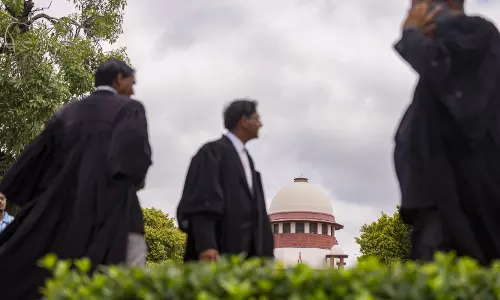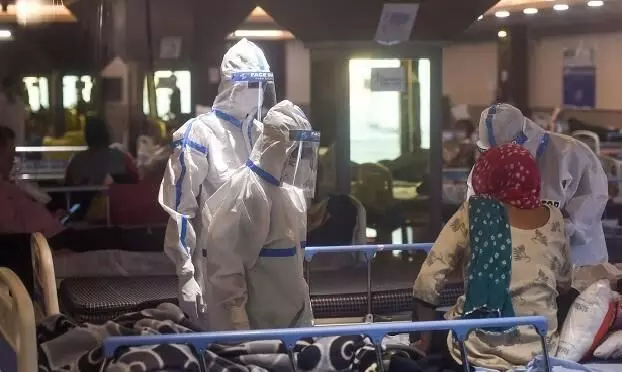
Centre revises guidelines for treatment of adult Covid-19 patients
text_fieldsNew Delhi: In view of the rising COVID-19 cases across the country, the Centre on Monday revised its clinical guidelines for the treatment of Covid-19 infected adult patients.
The 'Clinical Guidance for Management of Adult COVID-19 Patients', was issued by AIIMS, ICMR-COVID-19 National Task Force and Joint Monitoring Group (DGHS) under the Union health ministry.
The revised guidelines noted that there is no evidence of injectable steroids benefitting Covid patients not requiring oxygen supplementation or in continuation after discharge.
As per the guidelines, anti-inflammatory or immunomodulatory therapy, such as steroids, can have the risk of secondary infection like invasive mucormycosis, when used too early, at a higher dose or for longer than required.
It also continues to not recommend medicines such as antibiotics doxycycline and azithromycin, and antiparasitic Ivermectin for mild cases of Covid-19.
Mild diseases are those showing upper respiratory tract symptoms, with or without fever as long as there is no shortness of breath or hypoxia.
While such patients showing mild symptoms have been advised to stay in touch with their physician, they are also directed to go for symptom management by including adequate fluids, using antipyretics (anti-fever) and anti-tussive (cough suppressants) medicines for relief from sore throat, fever, congestion and cough.
In moderate cases, the guidelines stated that injection methylprednisolone 0.5 to one mg/kg in two divided doses, or an equivalent dose of dexamethasone, can be given usually for a duration of five to 10 days.
The same drug in two divided doses of one to two mg/kg can be given for the same duration in severe cases.
"Inhalational budesonide (given via metered-dose inhaler/dry powder inhaler) at a dose of 800 mcg BD for five days can be given in mild cases if symptoms (fever and/or cough) are persistent beyond five days of disease onset," it was stated in the guidelines.
The guideline added that one should opt for investigation for tuberculosis and other conditions if cough persists for more than two-three weeks.
The revised guidelines continue to recommend emergency use authorization (EUA) or off-label use of remdesivir in patients with "moderate to severe" disease and those with no renal or hepatic dysfunction within 10 days of the onset of any symptom.
It warned against the use of the drug for patients who are not on oxygen support or in-home settings.
Those aged above 60 years, or those having cardiovascular disease, hypertension and coronary artery disease diabetes mellitus and other immunocompromised states, such as HIV, active tuberculosis, chronic lung, kidney or liver disease, cerebrovascular disease or obesity are at high risk for severe disease and mortality, the guidelines stated.
"Seek immediate medical attention if Difficulty in breathing or SpO2 <93%; and high-grade fever or severe cough, particularly if lasting for >5 days (a low threshold to be kept for those with any of the high-risk features)," it said.
Among advanced medicines that have been granted emergency use authorisation based on limited available evidence, only injectibles remdesivir and tocilizumab have been included that too for select patients under strict medical supervision.
Moderate and severe disease cases are to be treated in a hospital.






















